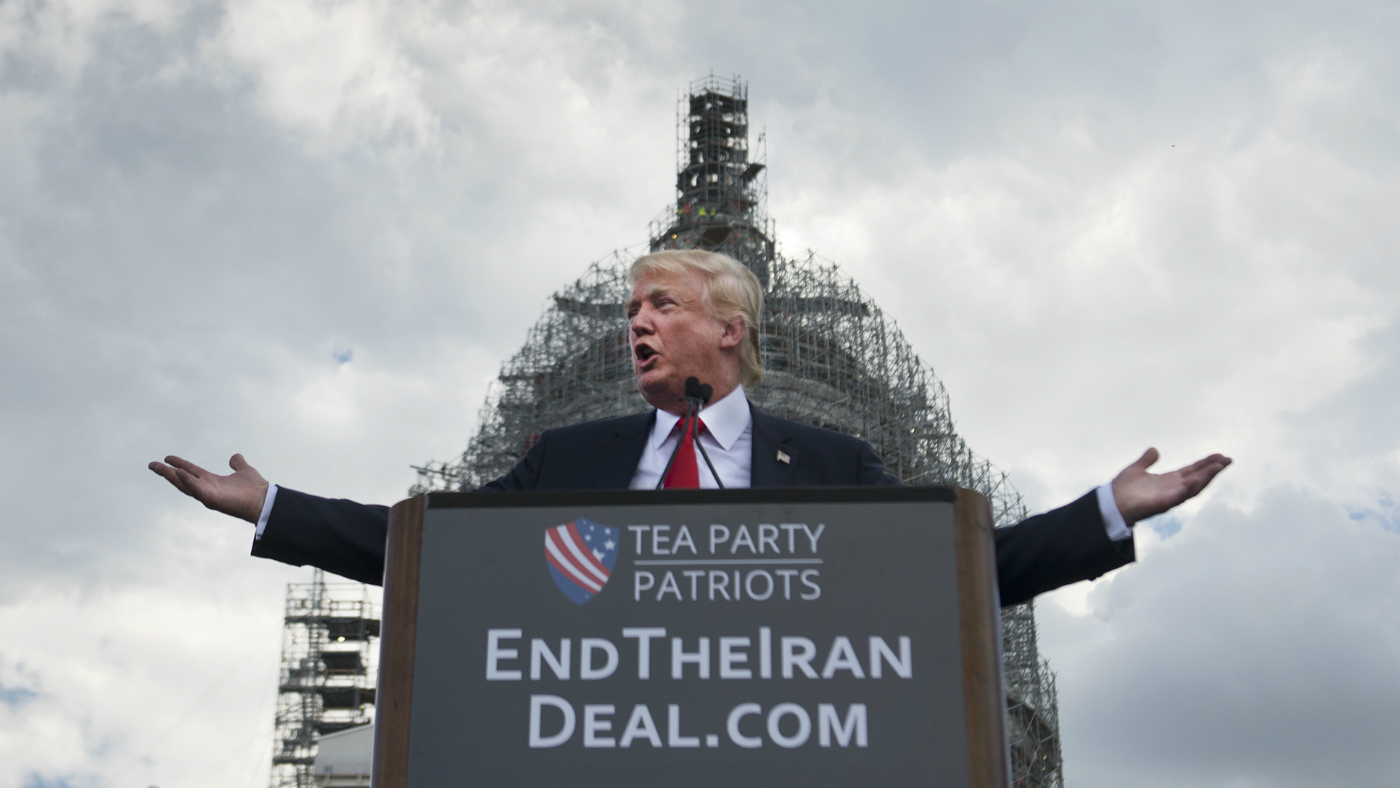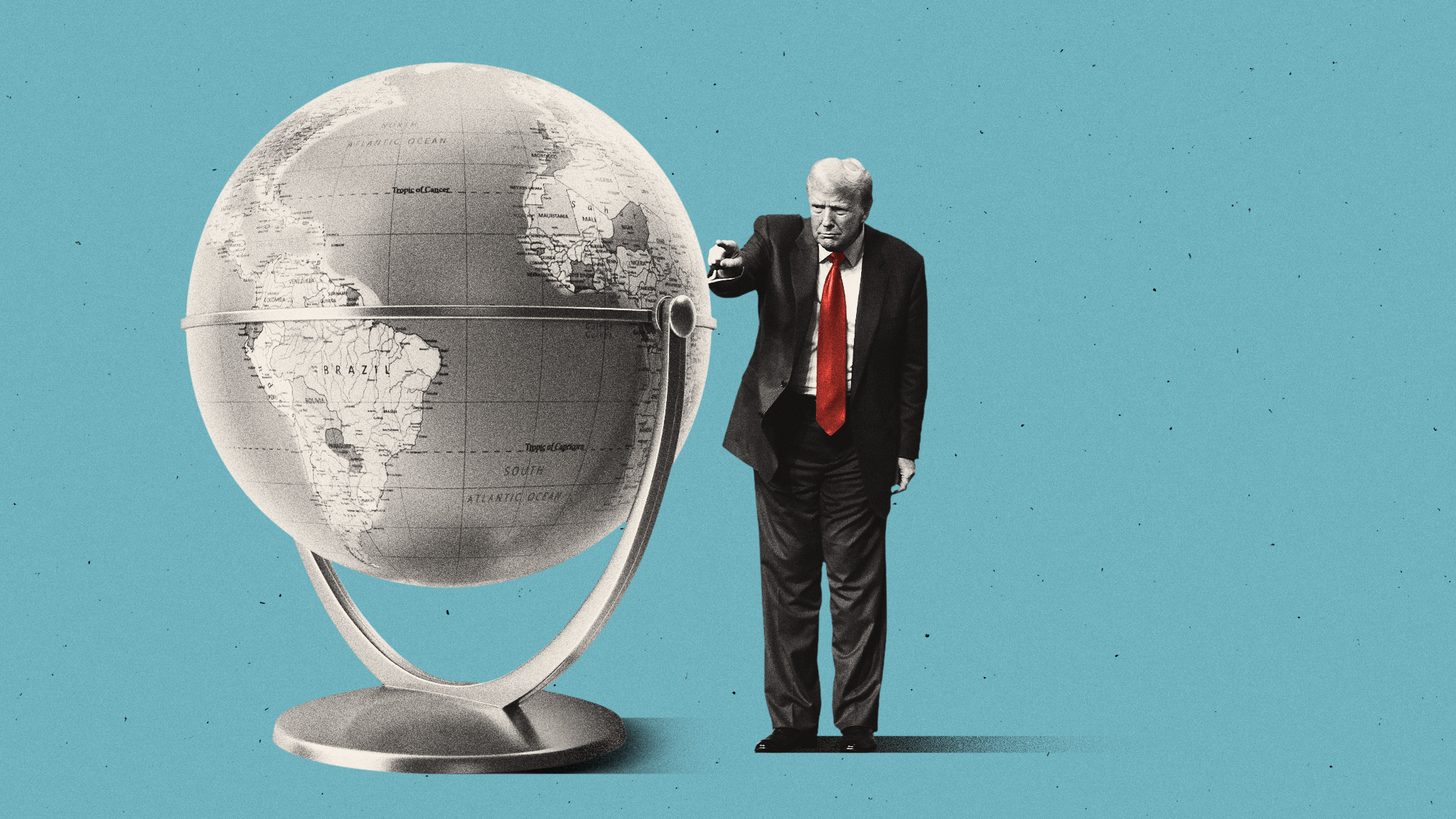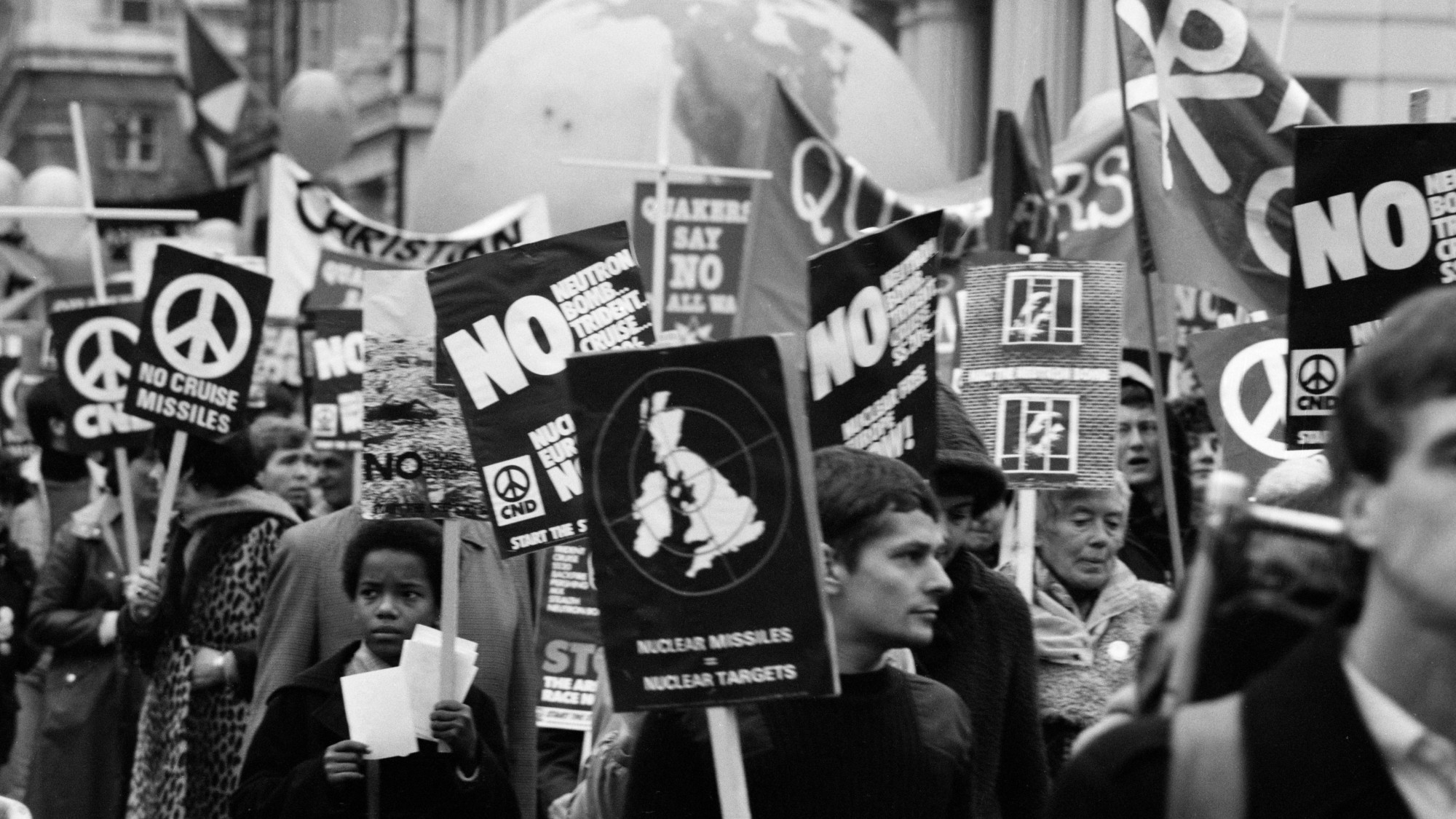US-Iran crisis: can Europe save the nuclear deal?
EU ministers convene in Brussels in an effort to salvage agreement

A free daily email with the biggest news stories of the day – and the best features from TheWeek.com
You are now subscribed
Your newsletter sign-up was successful
Boris Johnson has told Tehran that Britain remains committed to the Iran nuclear deal, despite calls by Donald Trump for a UK withdrawal from the agreement amid the ongoing diplomatic crisis in the Middle East.
During a phone call with Iranian President Hassan Rouhani this week, the British prime minister said that the agreement - agreed in 2015 by Iran and a group of world powers including the Barack Obama-led US – “retained his backing”, The Telegraph reports.
The deal has been under threat since Trump pulled the US out of the agreement in 2018. With Tehran now vowing to backtrack on its commitments and Washington putting pressure on European nations to withdraw too, can the EU save the nuclear deal?
The Week
Escape your echo chamber. Get the facts behind the news, plus analysis from multiple perspectives.

Sign up for The Week's Free Newsletters
From our morning news briefing to a weekly Good News Newsletter, get the best of The Week delivered directly to your inbox.
From our morning news briefing to a weekly Good News Newsletter, get the best of The Week delivered directly to your inbox.
What has Trump said?
On Wednesday, Trump “pulled back from the brink of war with Iran after having ordered the killing of a top Iranian general”, The Times of Israel reports. But the US president later added to the tensions with Tehran by saying “the time has come” for the other co-signatories to the Iran nuclear deal to follow the US in pulling their support.
“Nations have tolerated Iran’s destructive and destabilising behaviour,” he told reporters. “Those days are over.
“The time has come for the UK, Germany, France, Russia and China to… break away from the remnants of the Iran deal,” reports Euronews.
A free daily email with the biggest news stories of the day – and the best features from TheWeek.com
Trump appears to have been galvanised by news that Iran has scrapped limits imposed on its nuclear enrichment by the agreement and has “already breached many of the restrictions under the deal”, according to Al Jazeera.
With the US calling for the dissolution of the deal and Iran apparently violating its terms, European leaders have been left in an “awkward position”, the broadcaster reports.
What is Europe doing in response?
According to CNBC, the EU has “attracted criticism for its slow response to the crisis” that erupted last week, with many EU countries making statements some days after the assassination of General Qasem Soleimani.
However, with the Iran deal on the brink of collapse, European lawmakers have sprung into action, with a number of countries expressing their public support for the agreement.
On Thursday a French foreign ministry spokesperson told reporters that “France remains committed to the framework of the Vienna Iran nuclear accord” and “continues to work with the other parties” involved in the deal.
The same day, Prime Minister Johnson “underlined the UK’s continued commitment” to the deal in a conversation with President Rouhani, according to a Downing Street spokesperson, the BBC reports.
A spokesperson for the German government also claimed its “goal remains to save the agreement”, and earlier this week European Commission President Ursula von der Leyen told reporters: “From a European viewpoint, it is important for Iran to return to the nuclear deal. We have to convince Iran that it’s also in its own interest.”
The EU has arranged a rare emergency meeting of its foreign ministers for Friday afternoon, where the next steps are due to be discussed, according to Euronews.
Can they save the deal?
In the current chaotic climate, it’s anybody’s guess.
Neil Dwane, global strategist at Allianz Global Investors, told CNBC: “I think [the deal] is dead in the water… [Iran will] say one thing with one hand and move on.”
Holger Schmieding, chief economist at investment bank Berenberg, agreed. He claimed that the accord “is largely dead as Iran feels no longer bound by it”.
He added: “As Trump does not listen to allies, Europe’s role is very limited in the region. Europe is mostly a bystander, having to grapple with the potential fallout of instability in the region without being able and willing to influence events much.”
But, as the BBC notes, “nobody other than President Trump wants to declare the agreement dead”, and a desperate salvage mission by the EU could see it saved, especially as “accepting the deal’s demise might make a difficult situation even worse”.
The broadcaster also notes that if the deal does fall apart, there may be scope for the EU to renegotiate a new deal without the input of the US.
-
 Gisèle Pelicot’s ‘extraordinarily courageous’ memoir is a ‘compelling’ read
Gisèle Pelicot’s ‘extraordinarily courageous’ memoir is a ‘compelling’ readIn the Spotlight A Hymn to Life is a ‘riveting’ account of Pelicot’s ordeal and a ‘rousing feminist manifesto’
-
 The EU’s war on fast fashion
The EU’s war on fast fashionIn the Spotlight Bloc launches investigation into Shein over sale of weapons and ‘childlike’ sex dolls, alongside efforts to tax e-commerce giants and combat textile waste
-
 How to Get to Heaven from Belfast: a ‘highly entertaining ride’
How to Get to Heaven from Belfast: a ‘highly entertaining ride’The Week Recommends Mystery-comedy from the creator of Derry Girls should be ‘your new binge-watch’
-
 Munich Security Conference: a showdown between Europe and Trump?
Munich Security Conference: a showdown between Europe and Trump?Today’s Big Question Report suggests European leaders believe they can no longer rely on the US for military support – but decoupling is easier said than done
-
 New START: the final US-Russia nuclear treaty about to expire
New START: the final US-Russia nuclear treaty about to expireThe Explainer The last agreement between Washington and Moscow expires within weeks
-
 What would a UK deployment to Ukraine look like?
What would a UK deployment to Ukraine look like?Today's Big Question Security agreement commits British and French forces in event of ceasefire
-
 Would Europe defend Greenland from US aggression?
Would Europe defend Greenland from US aggression?Today’s Big Question ‘Mildness’ of EU pushback against Trump provocation ‘illustrates the bind Europe finds itself in’
-
 Greenland, Colombia, Cuba: where is Donald Trump eyeing up next?
Greenland, Colombia, Cuba: where is Donald Trump eyeing up next?Today's Big Question Ousting Venezuela’s leader could embolden the US administration to exert its dominance elsewhere
-
 The history of US nuclear weapons on UK soil
The history of US nuclear weapons on UK soilThe Explainer Arrangement has led to protests and dangerous mishaps
-
 Did Trump just end the US-Europe alliance?
Did Trump just end the US-Europe alliance?Today's Big Question New US national security policy drops ‘grenade’ on Europe and should serve as ‘the mother of all wake-up calls’
-
 Is conscription the answer to Europe’s security woes?
Is conscription the answer to Europe’s security woes?Today's Big Question How best to boost troop numbers to deal with Russian threat is ‘prompting fierce and soul-searching debates’